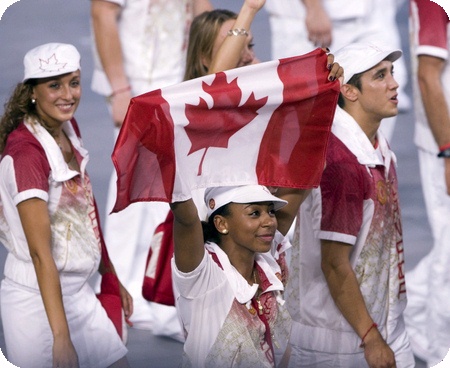With this blog I intend to help students improve their English skills. However, I will write a little about Portugal. I love the English language, but I am also very proud of my mother tongue and of my cultural heritage.
Friday, February 26, 2010
Wednesday, February 24, 2010
Tuesday, February 23, 2010
Multiculturalism in Australia

"Australia is a multicultural society. However, there are mixed feelings among the community about being multicultural. These conflicting viewpoints, stemming from things like the amount of education a person has, their upbringing, media exposure of certain race issues and the political nature of society, develop different attitudes towards multiculturalism. Some believe multiculturalism is good for the society as it brings cultural diversity to the society, can foster a tolerant society, and improve relations with other countries. However, others think multiculturalism is bad, perhaps under the belief that migrants take jobs, that they bring racial tension to Australia, and that they create and settle in ghettos.A person's upbringing plays a major role in their views of the world, and indeed, what they believe about multicultural societies. If a person has grown up in a diverse suburb, with many different races, they would be more likely to be more tolerant of a multicultural society than a person who grew up in a one race suburb, or community. Parent's attitudes are also very important in shaping a person's view of the world ..."
Source: http://www.megaessays.com/viewpaper/86257.html
Multicultural Canada
" The future of multiculturalism is unclear. History has shown that the rise and fall of economic prosperity and the need for a larger labour force affect our society's openness toward new immigrants to our shores. Some fear that multicultural programs have encouraged immigrants, particularly recent ones, to stand apart from the majority of Canadians. Whether or not this is true, those who oppose multiculturalism advocate reducing the number of immigrants allowed into Canada. These critics would admit only those most able to assimilate quickly into mainstream Canadian society.
Who are the new Canadians?
The greater the diversity of the racial and cultural mix, the greater the need for tolerance and openness in accepting one another as fellow Canadians. With globalization and the ever-increasing movement of people from one country to another, the challenge of appreciating and accommodating cultural differences has become a universal experience. A multicultural policy that is sensitive to the needs of both long-time residents and the newly arrived will probably meet with the greatest success. Canada's future depends on the commitments of all its citizens to a unified Canadian identity, while still taking pride in the uniqueness of their individual heritage."
Read more at: http://www.mta.ca/about_canada/multi/#ethnic
Multicultural London

Woodlands Junior School is in the south-east corner of England
More than 270 nationalities make up the fabric of the city. Many have family roots in Africa and India, formerly governed by the British empire.
Although predominantly white and Anglo-Saxon, more than a quarter of London's population is from an alternative ethnic background, making up half of the Britain's total ethnic minorities. This gives London the largest non-white population of any European city and is an important part of its cosmopolitan feel.
Over 250 languages are spoken in the city, making the capital the most linguistically diverse city in the world.
In the 2001 census, people living in London classed their ethnic group as the following:
76% as white (classified as British White, Irish or "Other White"),
10% as Indian, Bangladeshi or Pakistani,
5% as black African,
5% as black Caribbean,
3% as mixed race and
1% as Chinese.
Source: http://www.woodlands-junior.kent.sch.uk/customs/questions/london/multicultural.htm
Monday, February 15, 2010
Tuesday, February 9, 2010
Monday, February 8, 2010
Saturday, February 6, 2010
Yes, you can!

Listen to English and learn English with pie - the podcast site for learners and teachers of English. podcastsinenglish.com
Yes, You can! Phillipa believes everyone can learn English and has some great advice (7 Jan 10)
Listen to this podcast!
Wednesday, February 3, 2010
Epals- An exchange with American High School students

My students and I have recently started a students’ exchange with two American High Schools. One of these schools is located in Virginia Beach while the other one is located in Henry, Illinois. Both teachers and students are involved in this project.
Students have already started sending emails to each other. They are enjoying the experience and are finding it very positive and rewarding because they are learning about another culture and mentality. Besides, this is a safe way of knowing new people and sharing experiences. Last but not least, they have the opportunity of practicing their English with native speakers of English.
All this is possible by using the educational site: www.epals.com.
If we are a teacher or a parent, you can create monitored accounts for your students or children. If you are a student, you can ask your teacher to start a project like this.
Do you find this experience interesting?
Subscribe to:
Posts (Atom)
